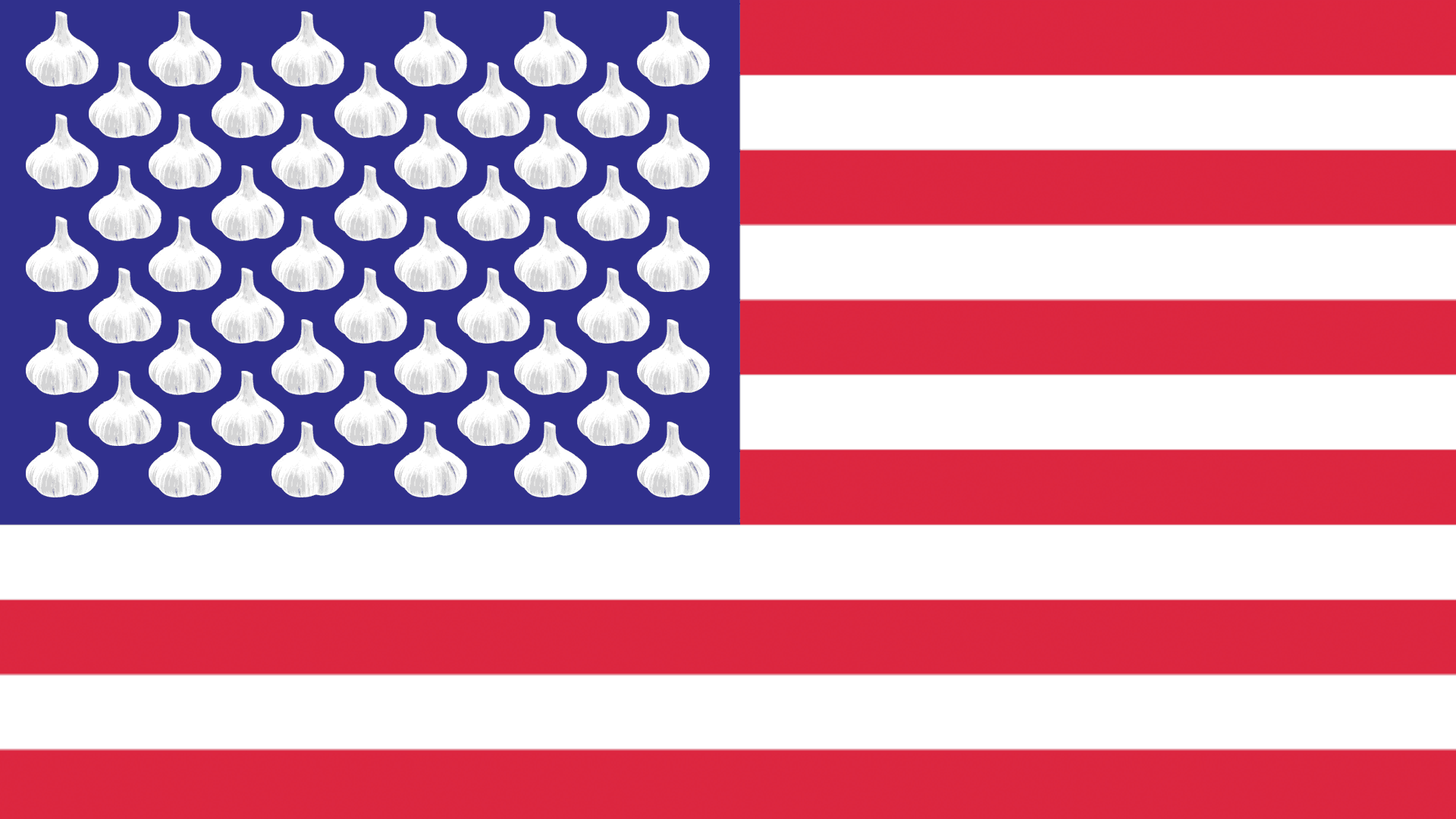 American farmers are livid with President Trump’s tariffs. But not garlic growers. Reeling after a quarter-century-long war with Chinese garlic farmers, they are thrilled with a trade war that they say could finally give them the advantage on U.S. turf.
American farmers are livid with President Trump’s tariffs. But not garlic growers. Reeling after a quarter-century-long war with Chinese garlic farmers, they are thrilled with a trade war that they say could finally give them the advantage on U.S. turf.
Why it matters: Chances are if you’re cooking with garlic (or, less commonly, using it medicinally), it’s from China, which has an iron grip on the U.S. market, controlling more than 90% of the dried garlic trade and killing many American garlic farms. U.S. farmers think Trump’s new 10% tariff could bring them back to life.
There is a “garlic war that has crowded out U.S. farmers,” says Eric Block, a University at Albany professor who has studied garlic for more than 30 years. Pricing pressure from cheaper Chinese garlic has caused a lot of of U.S. farms to scale back production, or shut down completely.
By the numbers: How the price difference ripples through the market can be seen in San Francisco, where the current price of a 30-pound carton of Chinese-grown white garlic is $38–$40, compared with $68 for U.S.-grown garlic, according to the USDA.
Ken Christopher, who runs Christopher Ranch, the largest U.S. garlic producer in Gilroy, California, says that even though the tariff will not equal out the prices, the penalty will make it less profitable for Chinese growers and “it will make an impact, when you’re dealing in millions of pounds of garlic.”
- The U.S. is the world’s largest garlic importer, according to the Agricultural Marketing Resource Center, accounting for 339 million pounds of garlic in 2017. It is also the world’s largest consumer.
- Cheaper labor, less regulation and overall lower production costs all allow Chinese growers to undercut most of its global garlic rivals. Pricing pressure from cheaper Chinese garlic has caused a lot of U.S. farms to scale back production, or shut down completely.
How they got here
U.S. troubles with Chinese garlic have a deep history. It’s been a three-generation fight, says Christopher, the grower in Gilroy, which calls itself the “garlic capital of the U.S.”
- Christopher’s grandfather, Don Christopher, was among domestic producers who in 1994 successfully lobbied the government to impose a 377% “antidumping and countervailing” duty on garlic imports.
But China got around those taxes, according to the U.S. Government Accountability Office, which in 2016 found that China’s growers were not paying the duties in full.
- By the early 2000s, Christopher began selling Chinese-imported garlic, too.
- “Wholesalers demanded the cheapest products,” said Christopher.
- Trump’s tariffs will “change the entire game for garlic farmers,” he says, because the tariff will be collected in advance, confounding the past “duty invasion schemes.”
Not everyone is so confident.
- Louis Hymel, a 50-year employee of Spice World, which packages garlic imported from China, Mexico and Argentina, said the tariffs won’t change the way the company does business.
- McCormick Spices said the tariffs will drive up the costs of their seasonings, CNN reported last month.
Source:axios.com
 American farmers are livid with President Trump’s tariffs. But not garlic growers. Reeling after a quarter-century-long war with Chinese garlic farmers, they are thrilled with a trade war that they say could finally give them the advantage on U.S. turf.
American farmers are livid with President Trump’s tariffs. But not garlic growers. Reeling after a quarter-century-long war with Chinese garlic farmers, they are thrilled with a trade war that they say could finally give them the advantage on U.S. turf.








